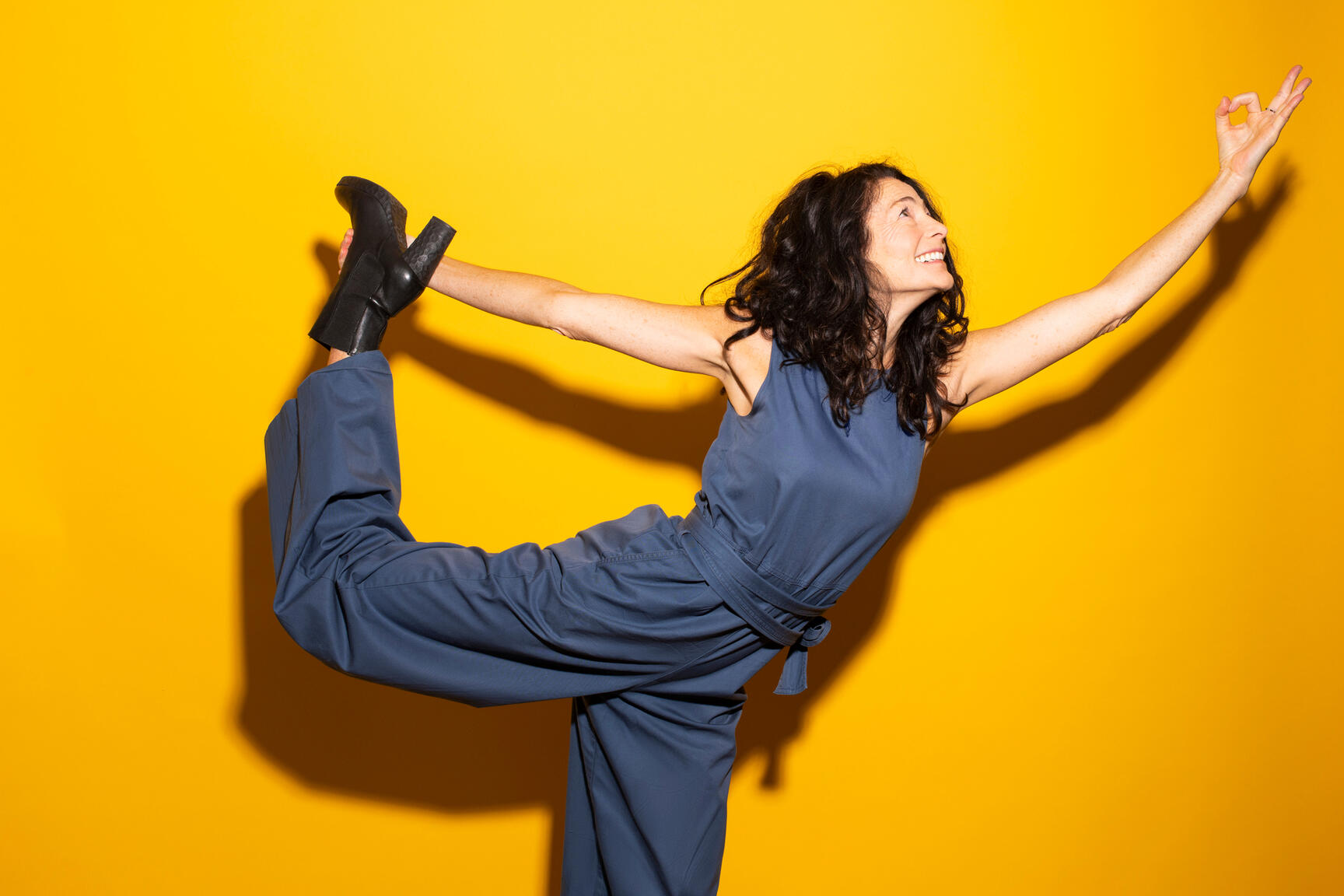
Role model Mai Chin A Paw
Who?
"I try to make the youth grow up as happy and healthy as possible to keep them out of Amsterdam UMC." Mai Chin A Paw is an exercise scientist, epidemiologist and professor epidemiology of youth and health and chair of the Youth and Health section within the Department of Public and Occupational Health. "Exercise is a wonder drug, it works both preventively and curatively for almost all diseases. Even as a child, I was always moving around. I grew up largely in the countryside. When I got up in the morning, the first thing I did was look after my horses. To get to school, I always had to cycle quite a distance. From an early age, I noticed how nice it is to exercise a lot. It really makes you happy, it makes you feel better, you sleep better and you are fitter. Exercise doesn't necessarily have to be at the gym, but dancing, looking after animals and gardening are also great forms of exercise. I am convinced that there is a form of exercise for everyone that makes them happy.”
Specialty
"If it's about youth and health, you can come to me. I specialise in movement, sedentary behaviour and sleep, and how they are related to health and a healthy development. I am known for my real life research, centered in society. In my current projects, I focus on reducing health inequalities among children. To help children in disadvantaged neighbourhoods increase their chances of a healthy development. Because all children are entitled to a healthy environment. I do not only conduct research on youth, but also with youth, participative co-creation. For example, in cooperation with the municipality of Amsterdam, I am working on a project to let children participate in determining how public space should be laid out in such a way that it is attractive for them to play and move around in it. Motor fitness - strength, stamina, coordination, speed and agility - of children has declined sharply since the 1980s. This is not only because children have become more overweight on average. Even children who are not overweight are less strong and less agile. If you have not learnt these motor skills properly as a child, the damage has already been done. . “Which can impact you for the rest of your life”.
Why are you committed to healthcare?
"In my view, Western healthcare places too much emphasis on curation (disease care) and too little on prevention (health care). My parents are both doctors, yet I have never care for Western 'disease care'. However, I have always been very interested in health and prevention. In my opinion, prevention is currently underexposed and underused, “while we could gain so many health benefits from it. .”
Amsterdam UMC aims to be diverse and inclusive. Where are the opportunities?
"There are plenty of opportunities for Amsterdam UMC. Student streams, for example, are already much more diverse than heads of departments or the board of directors. There are opportunities to create a more diverse workforce, at every level. But that is not enough. Everyone must also feel included and respected: Diversity is being invited to the party. Inclusion is being asked to dance (Verna Myers). That you can be your unique self and are appreciated for that, that you are encouraged to share your ideas and that you are listened to. This can be found in language, habits and behaviour. I think that's where the biggest opportunities lie."
A good example of inclusive collaboration within Amsterdam UMC?
"In early 2021, we started a project at Public and Occupational Health to make our department more inclusive, specifically focusing on people of colour. We are using a survey to map out how inclusive our department actually is. What are employees' experiences of racism and other forms of discrimination and exclusion? In focus groups and individual interviews, we will go deeper into these experiences. Then, together with the employees themselves, we hope to come up with solutions and actions to make the department more inclusive. In small action groups, we will develop, implement and test these solutions. Naturally, we will share our findings and solutions with the rest of the organisation so that more departments can use them. For me, the more inclusive the department, the more inclusive our research. Because the culture and atmosphere that prevails in the department is something you take into account when conducting your research. I also believe that if you conduct inclusive research in which all study participants feel equally treated, you will get richer research results. Much research is still done with WEIRD (Western, Educated, Industrialised, Rich, and Democratic) samples. Inclusive research provides more holistic knowledge that better fits the diverse reality."
Outside of working hours?
"Outside working hours, yoga is my great passion. The first thing I do when I get up in the morning is an hour and a half of yoga. My children and husband know that they shouldn't disturb me then. The advantage of yoga is that you can do it anywhere, anytime. Wherever I go, my yoga mat goes with me. And if you do it first thing in the morning, you can benefit from it for the rest of the day and nobody can take that away from you. I am also very interested in yoga philosophy. There are so many life lessons in it, it helps me to go through life positively and in balance."
